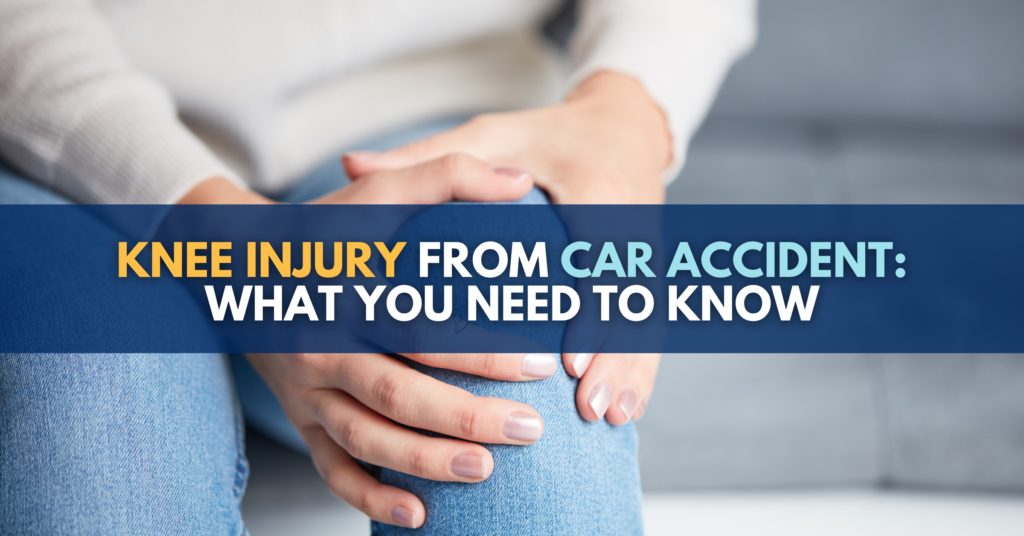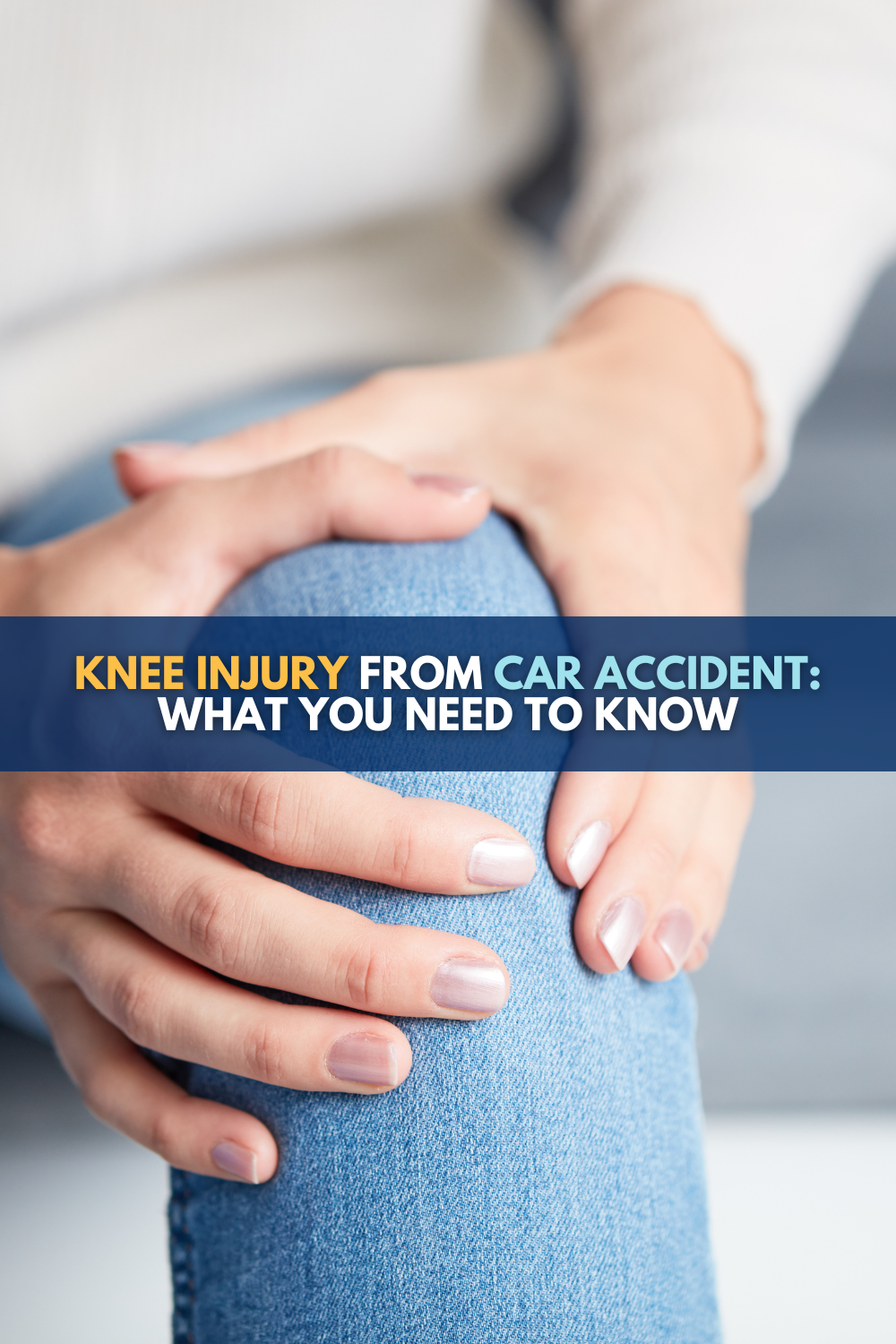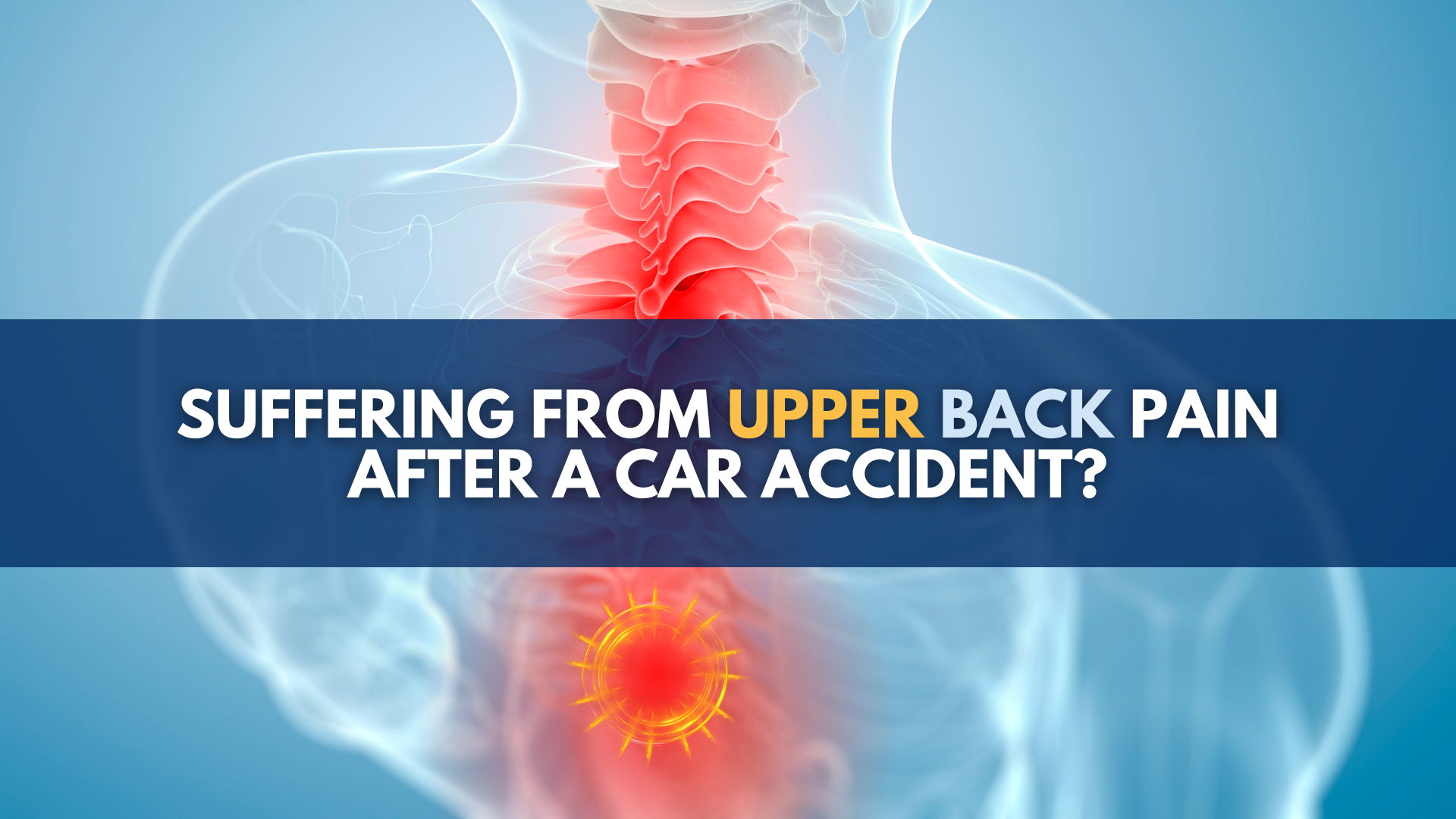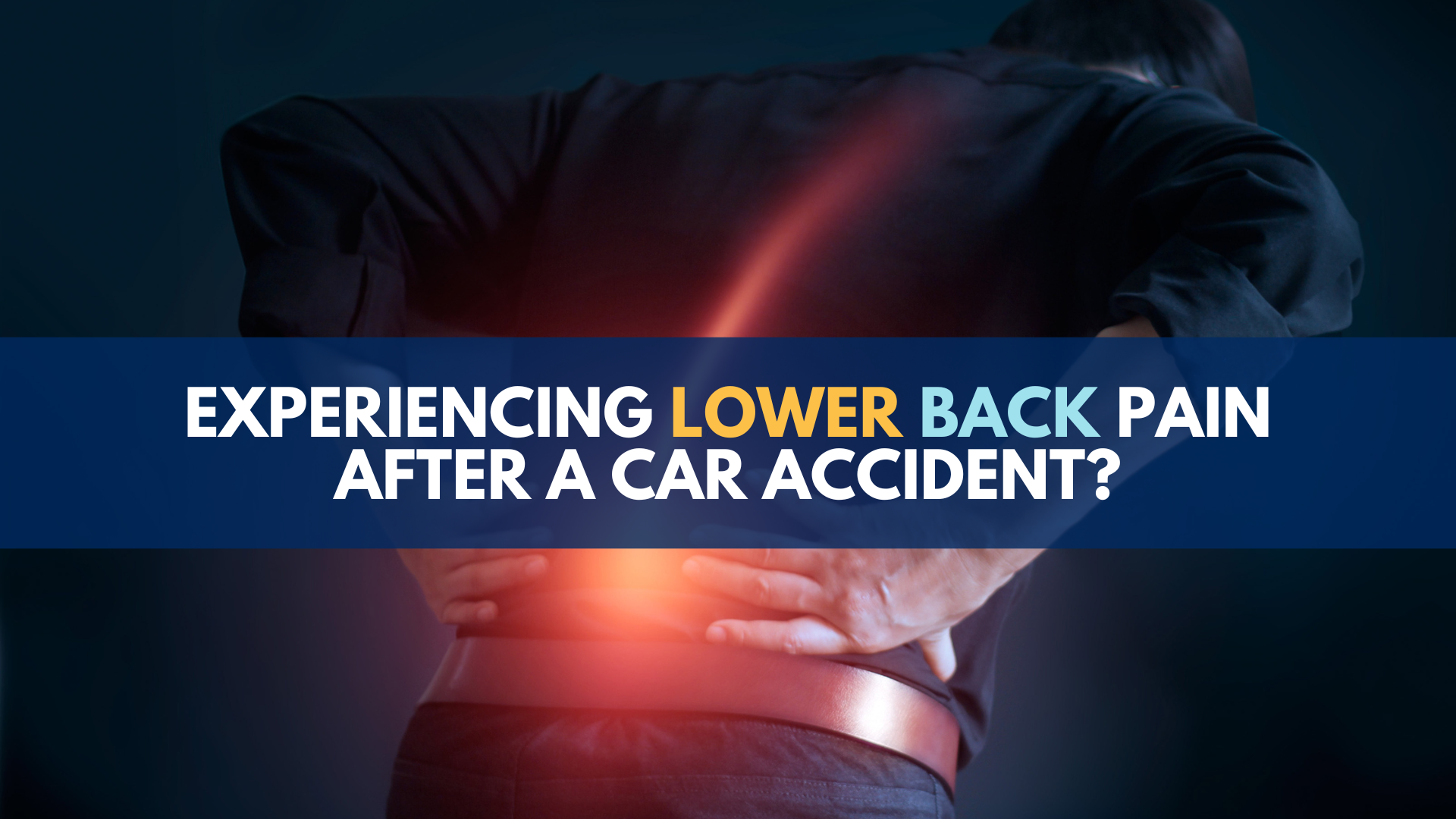
A knee injury from a car accident is very common and be caused by the knee striking an object within the vehicle or the force of the impact of the crash causing the knees to twist or tear. The most common crash-related injuries include meniscus injuries, ligament injuries, and knee fractures, sprains, strains and dislocations.
What causes a knee injury from a car accident?
A knee injury from a car accident can be caused when a person’s knee strikes the dashboard, steering column or other objects within the vehicle. It can also be caused when the force of the impact from the crash causes a part of the vehicle to “crush” a person’s knees.
Examples of a knee injury from a car accident
- Posterior cruciate ligament (PCL) injury – This is frequently referred to as “dashboard knee.”
- Medial collateral ligament (MCL) injury
- Anterior cruciate ligament (ACL) injury
- Meniscus injury
- Knee fracture
- Knee sprain
- Knee strain
- Knee dislocation – Without timely and appropriate medical treatment, a dislocation that causes an arterial injury (cutting off the blood supply to the lower leg) could result in amputation.
What to do for a knee injury from a car accident
If you are experiencing pain and believe you have suffered a knee injury from a car accident, follow these steps:
- Get examined immediately: Time may be of the essence. When it comes to properly diagnosing an injury from a crash, the sooner a person gets the proper medical treatment, the sooner they can begin the recovery process. As an injury lawyer, I always advise people that the sooner they can get the necessary medical care, the sooner they can get better.
- Diagnostic testing: My advice is to obtain medical treatment and get a referral for the appropriate diagnostic imaging as soon as possible for a knee injury from a car accident. A doctor can’t treat you appropriately until he or she knows what is causing your pain and other symptoms, and the appropriate diagnostic testing will enable your doctor to prescribe the best course of treatment for you and make the appropriate referrals for you to specialists who can help with these types of injuries.
- Early documentation always makes it easier to avoid future problems with your own insurance company. Early medical documentation, such as with your family doctor, will prove to a health insurance company or a No-Fault insurance company that the crash was the cause of your injury. If it does turn out to be a more serious injury, you’ve documented the early pain and other symptoms that can help you to avoid many of the problems that arise when an insurance company later might try to deny a causal relationship and refuse to pay for expensive medical treatment such as a surgery. Putting it another way, if there is a large gap of time before the symptoms of the injury are documented, then it is more likely the insurance company will question whether the vehicle crash was the cause of the injury. Early treatment and early medical documentation create the clear temporal causal relationship that insurance companies will be looking for when they are being asked to pay for necessary medical care.
- Showing a clear temporal relationship between a motor vehicle crash and the documentation of treatment also makes it easier to get a full and fair legal settlement for your injury or surgery when it is caused by another driver’s carelessness or negligence behind the wheel. Delays in seeking treatment hurt your ability to get better faster and make a good recovery, but it also often makes it harder for your injury attorney to get a reluctant and cynical insurance company adjuster to pay for your treatment and makes it harder to get a fair and full legal settlement after your collision if weeks or months have passed before there is any documentation in the medical records.
- Don’t try to “tough it out”: The pain, swelling and inflammation may go away, but it may also be indications of a far more serious injury. Better to have an arthroscopic surgery than it is to have a full knee replacement because the tearing and underlying damage became worse.
- Talk to an attorney who is experienced at helping people injured in motor vehicle crashes. Most experienced lawyers have helped people suffering from a knee injury from a car accident because it is one of the more common injuries we see. The initial call is always free so at the very least you will be informed as to what your insurance company is responsible to pay and what medical help and wage loss you are entitled to. An attorney can also help you review your medical records as well as the treatment and care you’re receiving to make sure bills are getting paid and to help you assess what your case might be worth if your pain and disability was caused by another driver’s negligence or carelessness.
- Tell your auto insurance company about your injury from a crash. If you live in Michigan, make sure to include this in your application for No-Fault benefits, which is also referred to as your “written notice of injury” – which must be given to your No-Fault auto insurance company “within 1 year after the accident.” (MCL 500.3145(1) and (4))
- Do not sign any settlements, releases, or waivers related to your crash: Until you have talked with an experienced attorney who is looking out for your interests, do not sign any settlements, releases, or waivers that are presented to you by your auto insurance company, the at-fault driver’s auto insurer or any other insurance companies or persons.
How to make a claim?
In Michigan, you start your claim by filing an application for No-Fault benefits with the responsible auto insurance company, according to the No-Fault law’s “priority” rules. The No-Fault insurer will pay for your medical bills and your lost wages if you cannot return to work.
Can I file a lawsuit?
Yes, you can sue for a knee injury from a car accident. If your auto insurance company refuses to pay for – or cuts-off – No-Fault benefits related to the injury you suffered, then you can sue for unpaid, overdue medical bills, attendant care, medical mileage, replacement services and lost wages because your injuries have prevented you from returning to work.
You can also sue the at-fault driver for pain and suffering compensation as a result of your crash-related injuries, but you will first have to show that the other driver was at-fault for causing the collision and that your injury constitutes a “serious impairment of body function” under our auto law.
Additionally, you may be able to sue the at-fault driver for other economic damages, such as excess and future medical bills and lost wages.
Common knee injury symptoms from a car accident
If you are experiencing any of the following symptoms, then you should seek medical attention as soon as possible:
- Popping sensation
- Swelling
- Severe pain
- Weakness
- Instability
- Inability to walk
- Inability to straighten the leg
- Locking in the knee
- Bruising
- Stiffness
- Tingling
- Deformity or protruding bones
- Limited range of motion
Treatment for a knee injury from a car accident
Treatment for a knee injury from a car accident may include any or all of the following: (1) pain medication; (2) physical therapy; (3) occupational therapy; (4) rehabilitation; and (5) surgery (including knee replacement surgery).
Suffered a knee injury from a car accident? Call our attorneys now!
If you have suffered a knee injury from a car accident, call now (800) 968-1001 for a free consultation with one of our experienced car accident lawyers. There is no cost or obligation. You can also visit our contact page or use the chat feature on our website.
Michigan Auto Law is Michigan’s largest and most successful law firm that specializes exclusively in helping people who have been injured in automobile crashes.
Our secret? Our attorneys deliberately handle fewer cases than other personal injury law firms. This allows us to focus more time and attention on our cases.
Unlike other law firms, our attorneys are never too busy to promptly return phone calls and answer questions.
We have more than 2,000 5-Star Reviews that reflect this care and attention to detail.
More importantly, this client-focused approach leads to better and faster settlements for our clients. Michigan Auto Law has recovered more million-dollar settlements and trial verdicts for motor vehicle accidents than any other lawyer or law firm in Michigan. We’ve also recovered the highest ever reported truck crash and car crash settlement in the state.
Call now so we can start making a real difference for you.



